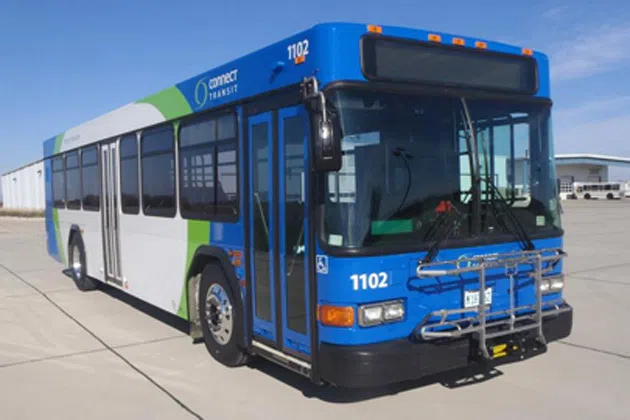
By Howard Packowitz
BLOOMINGTON – A Bloomington city council member believes there’s a local cost to the large, electric-powered Connect Transit buses even though they’re bought with federal and state dollars.
Heavier and longer 40-foot vehicles damage area roads, meaning local tax dollars are spent for road repairs, according to council member Jamie Mathy.
“They’re heavy enough they’re tearing up the roads,” said Mathy at this week’s committee-of-the-whole council meeting.
“At Front Street, you can literally see where the buses stop because the asphalt and everything shifts from the weight of those buses. If that’s the scenario, then I would still rather pay for the 30 foot buses to not have that damage to the road,” Mathy said.
In addition to Mathy’s concerns, the public transit system continues to hear complaints there are too many empty seats on the larger buses.
Connect Transit General Manager Isaac Thorne said there’s not enough room on the smaller 30 foot buses to accommodate the 40 people an hour who board the bus at peak times on nine of the 15 routes.
Thorne addressed Bloomington and Normal councils this week.
Normal council member Kevin McCarthy applauded Connect Transit for saving local taxpayers millions of dollars by securing federal and state aid to buy electric buses.
“As a guy who’s responsible for spending taxpayer money, when you start talking about $10 million to $12 million dollars in savings, and we’re not talking about that? Holy Cow! That’s a ton of taxpayer dollars,” McCarthy said.
Thorne said an electric bus costs up to $900,000, compared to $500,000 for a diesel-fueled bus. However, the transit system would not get federal and state funding to buy diesel-fueled buses, according to Thorne.
Also, he said electric buses don’t need fuel and various other parts, saving $256,000 over the vehicle’s dozen-year life span.
Howard Packowitz can be reached at howard.packowitz@cumulus.com




